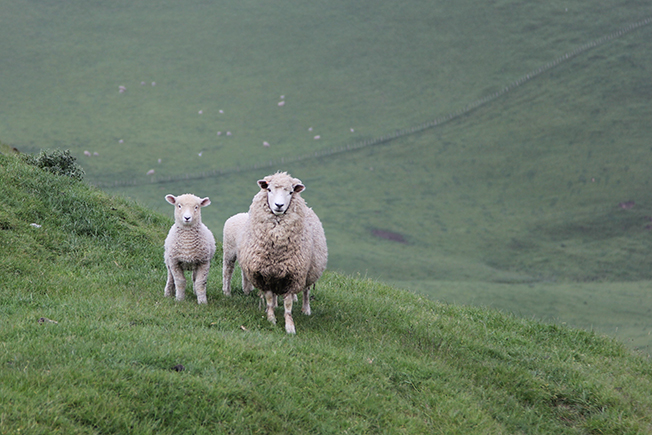WARNING: GRAPHIC CONTENT
A “placid and trusting” ewe that used to be petted by the children of Te Puru was one of three sheep attacked and killed by a roaming dog.
Ernie Sunlay’s Thames Coast paddock was a grim sight on the mornings of May 22 and 26, when two separate attacks by an unknown dog fatally injured his two wethers and an ewe.
“In the first attack, the dog must have been interrupted – the sheep was badly mauled about the shanks… it was bitten down to the bone,” Ernie told The Profile.
“The poor animal couldn’t walk and couldn’t respond to us. It had one ear ripped off and the other one was practically severed. The dog must have been quite large; it brought it down by the head but didn’t kill it. It just left it there.
“Did the owner become aware of [the attack] and call it off? But who walks their dogs or lets their dogs out that late at night?”
Ernie had to euthanise the wether.
He hoped it was just a “one off”, but overnight on Friday, May 26, there was another brutal attack.
“We checked the sheep at midnight and they were sleeping in the paddock. By about 6 o’clock in the morning, they were dead.”
Of the two further fatalities, one sheep was a wether while the second was Ernie’s “placid and trusting” ewe.
“The kids on the way to school and the locals used to feed it… It was like a petting zoo sort of sheep.”

On the night of the second attack, Ernie believes the dog came from the main road of Te Puru and chased his wether to the Sarjants Rd end of his paddock.
The wether had bite marks to its shanks and was brought down by its head. One of its ears was completely severed and it suffered a bite to the throat.
“The ewe, being as trusting as it is, just had a bite to the throat and it was all over.”
Ernie said his sheep weren’t the only victims, either. There had been eight other sheep in Te Puru killed by an unidentified dog in the recent months.
It was time for the attacks to stop, he said.
“I believe that the dog is new to the area, not necessarily the owner but definitely the dog, because this is only a recent thing that has been happening,” he said.
“My mate has had sheep for over 18 years, and this is the first time [an attack] has ever happened.”
Ernie has contacted Thames-Coromandel District Council, and he said they were “very keen” to catch the culprit.
“I believe the owner must have a fair idea that their dog was responsible for the killings. Not only of our sheep, but of our neighbours’ sheep. That dog must have had blood on it.”
He is calling on his Te Puru community to help him identify the dog in order for the attacks to end.
“We can’t put any more livestock in [the paddock] until we find this dog and the council deals with it.”

Council’s group manager regulatory and planning Brian Taylor told The Profile council has installed a humane animal trap in the area and have spoken with “a number of” known dog owners in Te Puru.
However, the trap has so far yielded no results, and because there were no eyewitnesses to the attacks on Ernie’s sheep, council can only continue to investigate and raise awareness.
“Often with dog attacks, we’re only successful if someone witnessed the dog or knew where it came from. When it happens in the middle of the night, it is difficult to get a lead, but we’ll spend a bit more time in the area,” Brian said.
Where there is evidence, council undertakes a proportionate response and proceeds with prosecution, if it is warranted.
“We take any attack seriously, and certainly when [a dog] has killed livestock or attacked a human or another animal, it is significant,” he said. “When we’ve had a number of sheep killed over two attacks, we take that really seriously and investigate all complaints.”
Brian wants to encourage residents to report sightings of any roaming dogs to council. Doing so can potentially prevent any further attacks, he said.
DETAILS: Call 07 868 0200.
BY KELLEY TANTAU





